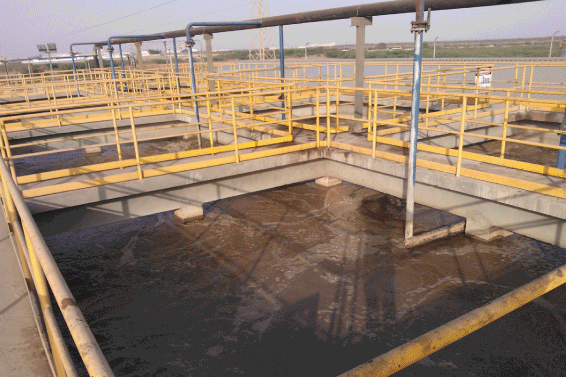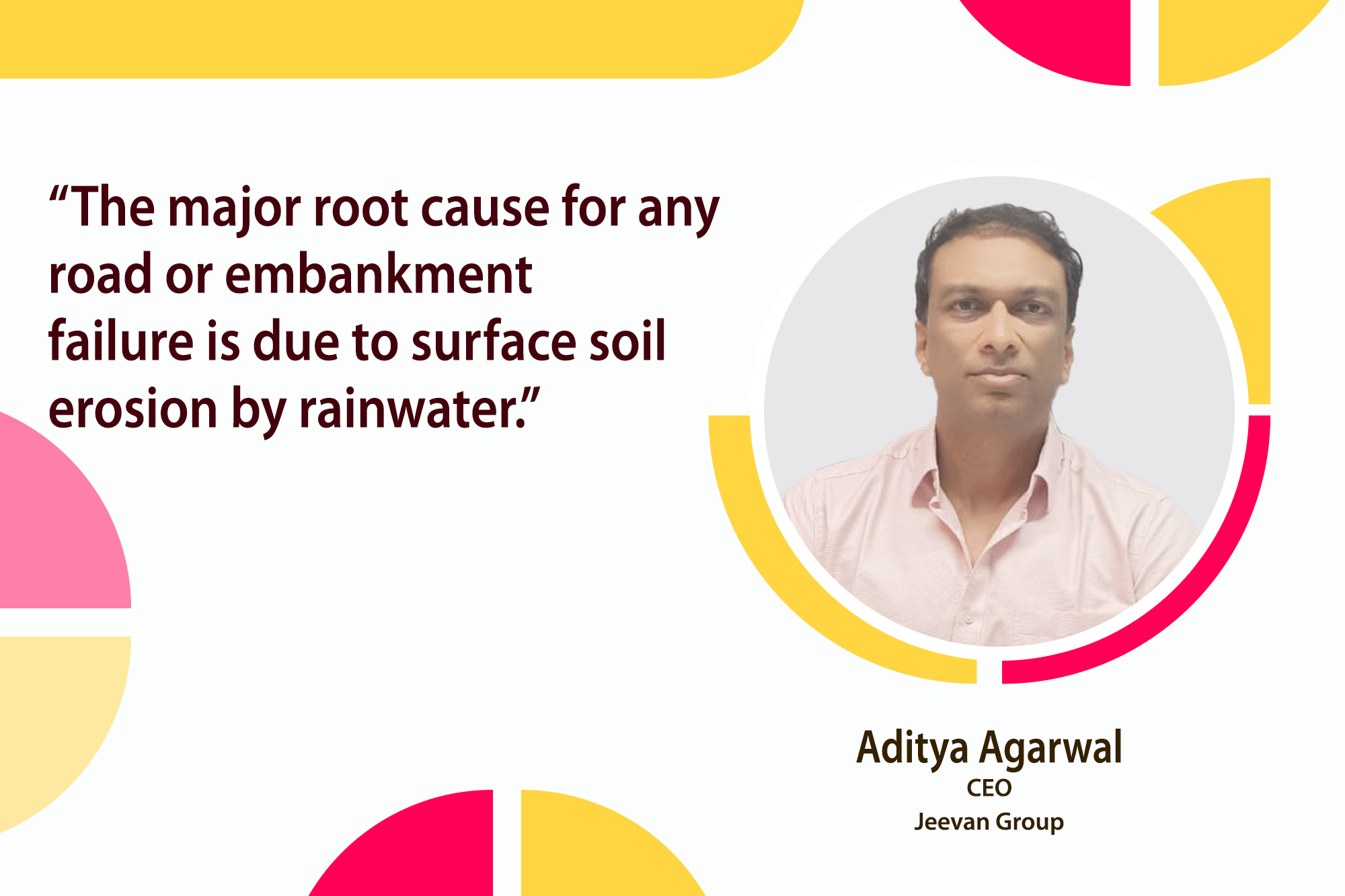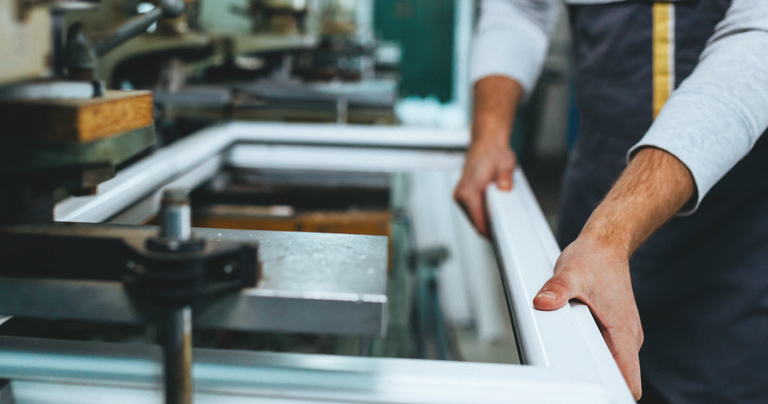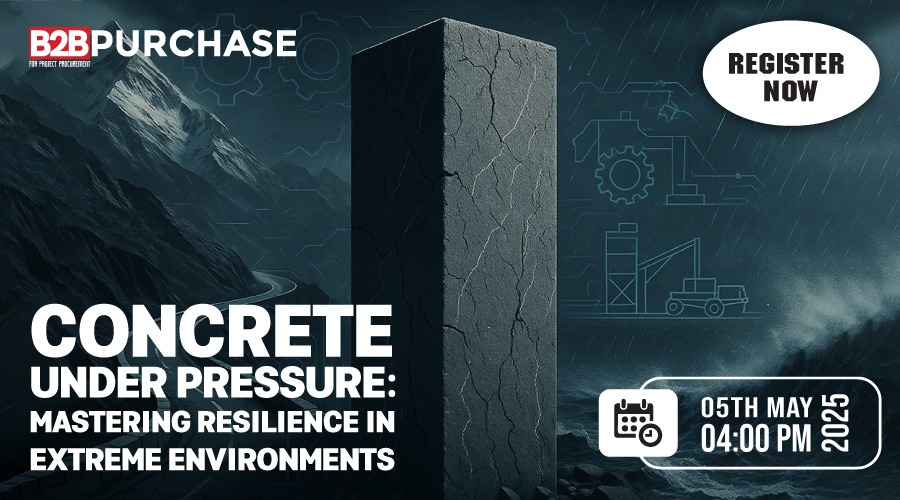Innovative solutions for treating wastewater
By Edit Team | December 18, 2018 11:00 am SHARE

In today’s scenario, wastewater treatment is no longer a choice but has become essential.
With rising population and depleting water resources, wastewater treatment is no longer optional. Most developing countries struggle to keep a balance between inadequate water supply and increasing water demand for industrial, agricultural and domestic purposes. A country like China generates more than 20 billion cu.m of effluent yearly. Hence, it is imperative to find innovative solutions for wastewater treatment.
Lack of appropriate technology for treatment of industrial effluent further pollutes the fresh water sources. Governments across the globe have woken up to this fact and have allocated huge amounts to reap the desirable results. The government of a country as small as Uruguay has allotted 100 million dollars for innovation in the realm of wastewater treatment.
Bio-Augmentation
Bio-augmentation of industrial effluent is a new-age technology revolutionising wastewater globally. Unlike the physico-chemical methods,bioremediation provides a cost-effective and safe alternative for wastewater treatment. Specialised consortium of microbes can aid in degradation of complex recalcitrant compounds too, thereby helping industries meet Central Pollution Control Board (CPCB) norms, says Shruti Dambhare, Account Manager, Organica Biotech Pvt Ltd
In today’s scenario, where fresh resources are getting scarce and gradually disappearing, either because of global warming or not using the resources meticulously, treating wastewater is not a matter of choice anymore, it has become mandatory. Today in India, on the one hand there are many areas where fresh water is misused for flushing and cleaning, and is wasted and not further treated, whereas on the other hand there are states which are drought prone and do not have water even to drink, says Nidhi Wagh, Manager – Sales and Business Development, QUA Water Technologies Pvt Ltd.
In such cases, we have to take responsibility and make it a point to treat and recycle all the wastewater generated from industries as well as commercial and residential buildings. This will automatically reduce the load on the intake of fresh water which is one of the major reasons for rivers and bore wells running dry.
Fresh water and recycling
Rapid industrialisation, urbanisation, population growth, and contamination of natural water bodies demand wastewater recycling as a prime factor towards conserving water resources and protecting the environment from harmful wastewater. In several parts of India, freshwater resources are already severely stressed, and government bodies and service providers are struggling to meet the ever-increasing demand. Thus, it is imperative to use freshwater judiciously and recycle used water optimally.
“It’s not a need, but a necessity now. Soon, industries will be compelled to reduce the intake of unnecessary fresh water, and to recycle and reuse wastewater without disposing of a single drop of water outside. Such practices are not only crucial to the environment but also a key to the survival of industries,” says Hemant Joshi, Head of Water & Waste Solutions business group at Thermax Limited.
“Rapidly increasing population, industrialisation and pollution are exerting enormous strain on existing fresh water resources. Maintaining a balance between the available resources and the ever-increasing water demand across all sectors presents a significant challenge today, according to Ajay Popat, President, Ion Exchange (India) Ltd.
Recycled water is a drought-proof, dependable, locally controlled additional source of water supply and hence one of the most effective solutions to help solve water scarcity.
In addition, to meet the strict discharge norms imposed by the government, it is imperative that industries treat their waste water before discharge. Thus, escalating water shortages and rising water costs, coupled with tighter regulations on consumption of fresh water and discharge of waste water, have significantly boosted the adoption of wastewater recycle by industry and municipalities as well as by residential, commercial, institutional complexes, hotels and resorts.
While earlier, technologies to treat waste water for reuse were mainly biological, current techniques integrate physio-chemical, biological and membrane separation and thermal evaporation processes for optimum water recovery.
Water preservation – a responsibility
Nature has its own way of adapting to each calamity or scarcity. Yet, to the extent this issue of water conservation is concerned, it is exceptionally clear that the common procedures are lingering behind. The pace of water depletion is a lot higher than the pace of water replenishment. The nature’s procedure couldn’t adapt to the loss and so, it is our responsibility to contribute towards the issue, according to Megha Halyalkar, Marketing Specialist, Hanna Equipments India Pvt Ltd.
Treatment of waste water is a part of water cycle and subsequently it is very much important for the overall environment. Activities like bathing, washing, and so on, contaminate the water and abandon it for no use. But, with the help of treatment, the water can be again conveyed in a sound state to make it usable.
“The treatment should be possible
either by biological waste water treatment plant or by physical treatment or chemical treatment, added Halyalkar.
Wastewater treatment solutions
Q-SEP Ultrafiltration membranes and EnviQ Membrane Bioreactor
QUA is a membrane manufacturing company with a state-of-the-art manufacturing setup in India. “Our products like Q-SEP Ultrafiltration (UF) membranes and EnviQ Membrane Bioreactor (MBR) are widely used in wastewater treatment systems all across the globe. Being membrane experts, we have conceptualised and designed these products with years of research benefits our customers in terms of capital savings, says Wagh.
Q-SEP hollow fiber UF modules contain membranes manufactured with QUA’s innovative patented “Cloud Point Precipitation” method. This process ensures a high pore density along the length of the fiber and uniform pore size distribution in the membrane; 95 per cent of the pores are of the size 0.02 micron. Q-SEP modules deliver higher flux rates and product water quality that surpass the quality from conventional UF modules.
QUA’s submerged UF EnviQ membranes have been specially developed to improve the ease of operation and maintenance of MBR facilities. EnviQ’s innovative patented design, with the more rugged PVDF flat sheet membrane, offers UF quality product water that is highly superior and can be directly used for recycling.
Skid-mounted and containerised treatment plants
Thermax believes in understanding customer needs to develop innovative solutions which suit their requirement, and at the same time add value to their business. They provide high-quality products with standardised skid mounted and containerised plants. “We have an integrated value proposition by way of our wide range of products and services, says Joshi.
Thermax innovatively worked on the development of customised solutions for decentralised packaged water treatment plants, recycle plants and zero liquid discharge (ZLD) plants foreseeing the need in the industries. They have a dedicated team to work on plant improvement and upgrade solutions for existing plants. “We also have focused teams handling complete plant operations, helping our customer maintain lower operating cost and higher uptime of their water and wastewater utilities. We presently have around 150 performance management sites operational across India, adds Joshi.
BioCask
Thermax has a patented packaged sewage treatment plant called ‘BioCask’ which can be fitted even in a basement with a height of 3.5 meters. The plant produces less than five BOD at the outlet without using ultrafiltration membranes, thereby reducing both capital as well as operating costs. At the same time, the treated water is of a high quality which can be used for non-potable applications. This system reduces the lifecycle cost and occupies one-fifth of the space as compared to a conventional system. These can be installed in basements and on terraces with the options of recycling, complete automation and connection to the municipal lines, facilitating a decentralised sewage treatment.
Company’s widest range of technologies include bio process, membranes and thermal evaporation processes to meet the stringent requirements for effluent discharge and zero liquid discharge requirements of industries and municipalities.
Some of the specialised solutions for industrial wastewater treatment include:
Industrial effluent treatment plants: Company’s state-of-the-art completely automated wastewater treatment plants treat all internal process or utility waste water and storm and fire water, with the objective of zero liquid discharge. They have commissioned more than 50 industrial effluent recycle plants till date.
Zero liquid discharge (ZLD): Ion Exchange not only offers advanced water and wastewater solutions that comply with discharge norms but also provide cost-effective effluent recycle and zero liquid discharge solutions. Industries that have installed effluent treatment and recycle and zero liquid discharge plants have gained immensely by meeting strict compliance norms and have also gained excellent payback on their investment through assured quality of water for their process and utility needs. The company offers widest range of processes and technologies – physico-chemical treatment, biological processes, membrane systems, thermal evaporators and solid waste (to energy) management systems.
The company also offers standardised solutions for wastewater treatment using a wide range of Bio processes like Membrane bioreactors (INDION FMR), sequential batch reactor (SBR), moving bed bio reactor (MBBR) etc.
INDION Packaged Sewage Treatment Plants – The INDION packages sewage treatment plants allow waste water treatment and recovery and are a perfect fit for smaller industries, housing and commercial complexes, institutions etc as they are compact, user-friendly and minimise use of power and chemicals to treat and reuse sewage or wastewater. Our packaged sewage treatment plants are based on membrane Bioreactor (MBR), sequential batch reactor (SBR), moving bed bio reactor (MBBR) and an advanced version of attached growth process (NGPSTP).
Ion Exchange has continuously strived to bring innovative solutions that add tremendous value to the customers. Some examples of the innovations include:
• INDION MBR that combines the advantages of flat sheet and hollow fibre membrane systems while eliminating the disadvantages of classically flat sheet MBR.
• INDION High rate anaerobic reactor which offers advantages of higher organic loading, reduced footprint and more efficient biogas or bio fuel generation at reduced cost.
• Ion Exchange is in the process of commercialising several advanced membrane solutions that will recycle water at far less energy cost compared to conventional membrane processes used by the industry.
Multiparameter HI9829
Hanna has products for testing major water parameters, parameters like pH, conductivity, Turbidity, TDS, Ammonia, Chlorine, COD/BOD, Dissolved Oxygen and many more. Apart from water testing we are supplying instruments for agriculture, aquaculture, environmental, food, dairy, beverage and for other industry. “We attempt to provide new innovative products at affordable cost to our customers,” says Halyalkar.
The company offers more than 3000 products and our R&D team continuously strive to develop new techniques that simplify the testing procedures.
“We highly recommend our Multiparameter HI9829 to our users which measures 14 different water quality parameters. One of our recent product launches is of HI98198, an Optical Dissolved Oxygen Meter,” he adds.
Cleanmaxx
Organica Biotech has developed specialised range of waste water treatment solutions. Currently, these solutions have remediated over 2000 industries and 200 water bodies, and are exported to 48 plus countries.
“Our pioneering technology, packaged with the goodness of nature, is embodied in “Cleanmaxx” series of products. Cleanmaxx is tailor made to suit the demands of all types of industries and municipal,” says Dambhare. This highly concentrated formula can maximally reduce COD and BOD levels, sustain high TDS levels, reduce ammonical nitrogen levels and colour intensity of the effluent. The heterogeneity of microbes in Cleanmaxx ensures maximal degradation of diverse organic wastes. Cleanmaxx hails microbes from GRAS (Generally Regarded as Safe) category and are completely safe for animals, plants and humans to handle.
As the microbial consortium can also work at low dissolved oxygen (D.O) levels, the energy demands of a plant are lowered; thereby assuring guaranteed reduction in CAPEX and OPEX COSTS of the wastewater treatment plant.
Major Challenges
Adopting new technology
Major challenge lies in adopting new technologies which definitely come with a cost, but are beneficial in the long run, says Wagh. Abundant research is being carried out worldwide, and India is not far behind, in innovation of newer and better technologies for treating water.
With a right attitude and mind-set, and understanding the importance of water treatment, India should never see water shortage or droughts in coming years, which in turn can save the environment and lives, and surely be a driving force in India’s economic growth.
Stricter enforcement of existing rules and regulations
One of the significant challenges for the treatment of wastewater is the need for stricter enforcement of existing rules and regulations regarding wastewater disposal, believes Joshi. The government needs to enforce regulations and push industries to move to complete recycle and zero liquid discharge solutions. Wastewater recycling must be made mandatory for all industries and, decentralised sewage treatment plants should be made compulsory in the urban sector. This can significantly reduce the fresh water intake of major industrial and urban segments. We must also utilise seawater desalination solutions in coastal water-scarce regions.
Lack of awareness
In the municipal sector, the challenges include insufficient resources like capital, finance – both for new capex modification of existing assets and very importantly efficient operation and maintenance of wastewater treatment plants during their life span. One of the reason for this is municipal corporations do not get adequate revenues to treat community waste and more often than not, the operations are subsidised from other sources of municipal revenues.
“As regards industrial waste treatment, the major challenge includes lack of awareness of the right products and technologies that can provide payback on investments made in state-of-the-art water treatment technologies, states Popat. Thus, it requires public participation, better coordination among the various agencies involved, a need for policy, and the implementation and application of latest technologies.
Lack of pre-treatment of wastewater
Wastewater treatment is actually a systematic process and it starts at the very source. For instance, industrial waste or large domestic waste points like a large society or complex must have a sewage treatment plant (STP) system where wastewater goes through some sort of initial treatment before begin dumped into a large plant.
Agricultural and urban runoff
One of the effects of rising population and industrialization is urban runoff. This is the stormwater that runs off into storm drains instead of percolating into the soil. This depletes the groundwater (because the rainwater does not get a chance to be absorbed into the ground) and causes flooding.
Severe lack of wastewater treatment plants
The management of wastewater treatment in India must start with an adequate wastewater treatment infrastructure. However, this very infrastructure is severely lacking in India. According to official figures, the present installed capacity can treat only about 30 percent of the waste. Two of our biggest cities, Delhi and Mumbai, are running less than half of the required number of waste treatment plants.
Lack of will to invest further
The severe lack of wastewater treatment infrastructure is not accidental. The truth is that there is not enough public or government will to take the right action. While many countries have realised that wastewater management must be an integral part of water management (and hence, a critical part of a country’s infrastructure), there is still a telling lack of action to reflect this in India. Despite recent efforts to address waste management, actual investment still sits pretty low.
Lack of awareness about importance of wastewater treatment and the different methods available for the same proved to be a major hurdle in appropriate treatment of industrial effluent, says Dambhare.
Traditionally, some people resorted to manure as the source of microbes. Usage of microbes was not only associated with increased pathogenecity but also in in-effective treatment of waste water.
With advancement of technology and increasing stringency of environmental norms, most industries are making a switch to more viable biological alternative for waste water treatment.
India is massive country harbouring erratic climatic patterns. These conditions deter the growth of microbes in the biological section of effluent treatment plants. Microbes in Cleanmaxx are highly effective and possess the ability to thrive even in most challenging environmental conditions. These confer stability to ETP plants and ensure the smooth, all round functioning of effluent treatment plants.
Bio-augmentation of industrial effluent is a new age technology revolutionising wastewater globally.
Shruti Dambhare, Account Manager, Organica Biotech Pvt Ltd
We have conceptualised and designed these products with years of research benefits our customers in terms of capital savings.
Nidhi Wagh, Manager – Sales and Business Development, QUA Water Technologies Pvt Ltd
The pace of water depletion is a lot higher than the pace of water replenishment.
Megha Halyalkar, Marketing Specialist, Hanna Equipments India Pvt Ltd
We have an integrated value proposition by way of our wide range of products and services.
Hemant Joshi, Head of Water & Waste Solutions business group at Thermax Limited
Our extensive range of processes and integrated approach deliver complete solutions including wastewater treatment for every market.
Ajay Popat, President, Ion Exchange (India) Ltd
Cookie Consent
We use cookies to personalize your experience. By continuing to visit this website you agree to our Terms & Conditions, Privacy Policy and Cookie Policy.






































-20240213125207.png)

























